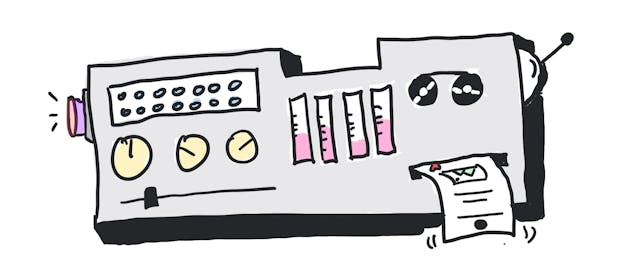If you enter the physical world and open a door—say, to walk into a store—you will intuitively hold the door open if someone is walking behind you and you see them or hear them. Even if you aren’t intending to be kind, the weight of the door and the presence of a fellow human being will encourage you to do the right thing, the human thing.
In the digital world, it’s much more difficult to see and feel the doors we walk through, to see and hear the people walking behind us. As a result, it’s also much more difficult to do the right thing, the human thing—to hold the door open for a person walking in right behind you.
When you’re operating in the digital world, it takes some effort and imagination to understand all the ways you can be well mannered and even kind.
This is especially true now, when we have all moved online quickly, not by choice, and under challenging professional and personal circumstances. The technology with which we are handling all of our communication, culture-building and collaboration might be tools we have, up until now, used solely for transactional purposes. Email, learning management systems, collaborative documents, phones and the like might have been places to “get work done” or lay the groundwork for in-person interactions and work.
But they were not the only platforms where those things happen. Suddenly, we have to rely on these tools to do way more than just work. They are the sole conduits for us to build and sustain relationships.
A few weeks ago, we started taking this problem seriously. It contained the kind of nuance that we like, and it offered a silver lining, glass-half-full kind of upside. We met with Eric Hudson, Director of Learning and Design at Global Online Academy, who specializes in both the tangible and intangible behaviors that make the online world friendly to learning, joy and collaboration.
We thought we might develop a list of small, online kindnesses based on our mix of experience and research—a list of things we can do for each other when we’re working in a remote manner. We immediately wrote things like “mute your microphone when you're in a video conference and not speaking” and “use ‘Reply All’ sparingly, if at all.” Soon, a short list had become a very long list.
And then we stopped short. Did we really want to share another long, detailed resource? Did we really want to contribute more than we already had to a digital pile of manifestoes and letters and essays and livestreams and webinars?
Not really.
We decided to build a tool instead, something that would reduce the cognitive load of our message and reach people in drips instead of a thousand-word opus that would require too much attention, too much parsing, too much translation to daily practice.
In fact, these boundaries emerged as themes for the way we see people wanting—and deserving—to work in the current moment.
Right now, people don’t need more to do, and they don’t need to accept that working remotely means working into the night or through the weekend. The technology powering the ability to connect or “hop on a call” or “jump in a Zoom” is fairly seamless, given the load it is handling. But this affordance doesn’t mean work and life should be seamlessly integrated. As we’ve said before, affordances should be resisted before they are adopted. Gifts should be examined thoroughly before they are welcomed past the gates.
Right now, people don’t need another request for their attention. (If you need them to watch a video, taking the time to specify the exact time demarcation is patently kind. It literally reduces eye strain; it figuratively turns down the heat on fried brains.) They don’t need to be interrupted by your background noise while they’re trying to present in their sixth Zoom meeting of the day. They don’t want to search for the pertinent details in another poorly managed, unnecessarily gnarly email chain.
Put simply, every time we seek to communicate remotely with another person, we should first consider how to best express the kindest and most empathetic intention. Maybe a phone call instead of eight emails? Maybe moving to Bcc all but the essential participants on an email chain? Maybe finding ways, again and again, to signal that you trust your team?
We built the SOK (Small Online Kindness) generator to remind ourselves about all of the above, and in fact, to help ourselves to be better conveners, better minders of the attention of others, better partners, even better friends. Visit the generator to see some small kindnesses formatted as an old-school website experience, to subscribe to a daily email, or to contribute to the project. We all have a stake in reviewing and rewriting the rules for humane digital interactions.


